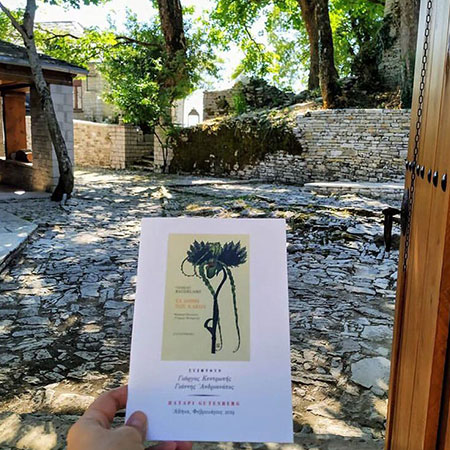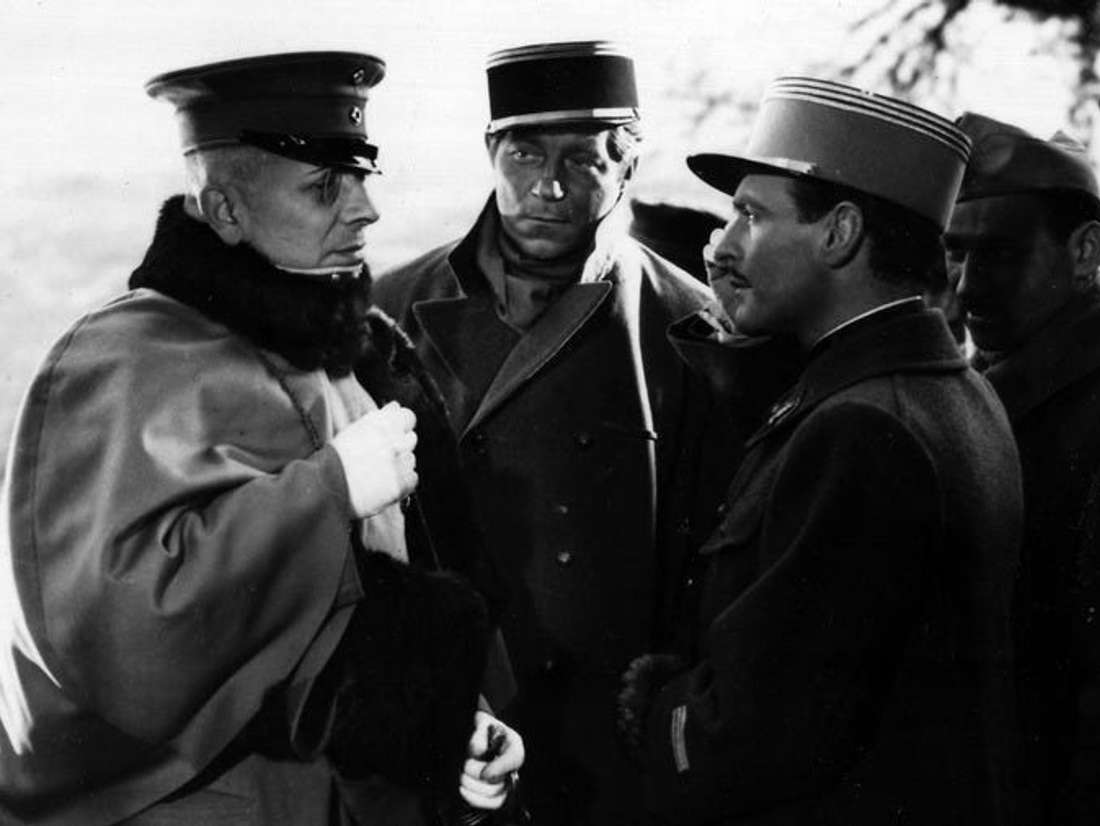(Global) Citizen Renoir
a citizen of the world (of films)
by MADO GIANNI
Hi everyone,
I thought this might be as good time as any to talk about nationalism.
In 1974, Jean Renoir published his autobiography, "My Life and My Films". In his closing chapter, he talks about flight entertainment and how "before long we shall travel around the world without even noticing."
I was going to write that he predicts that planes will be showing films but after a quick google search I found out that the first film to be shown in a moving aircraft was in 1925 :o
Filmmaker Jean Renoir embraces a future where the world is divided into horizontal compartments as he calls them and in this world ‘the nation’ has no place in it. He thinks that if flying has made traveling a whole lot easier and if airports, hotel rooms and restaurants are able to offer every traveler what they need in a compartmentalised and identical sort of way, it shouldn’t be long before the idea of ‘the nation’ dies.
Renoir died in 1979 and unfortunately, his predictions about the state of the world that he was leaving behind could not be further from the truth.
In the 1980s we have the Iran-Iraq war. The Yugoslav wars in the 1990s are fought in the name of ‘the nation’, many conflicts of which have not been resolved yet. In the 2000s, there’s 9/11 and in the following decade the Arab Spring. Today, we have a war in Ukraine and another one in Gaza while North America and Europe are in an existential crisis over immigration and national identity.
Renoir’s ideas about ‘the nation’ stemmed from his love and passion for the cinema and I think amidst all of this chaos, this might be a nice idea to hold onto.
"The environment which has made me what I am is the cinema. I am a citizen of the world of films."
Many times in his films, with the prime example of La Grande Illusion (1937), Renoir explores the idea that people are brought together by their common interests.
Watching it today, this film feels peculiarly resonant to the isolation, separatism and extremism the world is subjected to today.
La Grande Illusion is a film about a group of French soldiers who are held captive in several German prisons during World War I of which they constantly try to escape. It’s not a comedy but there’s definitely humour in it. In the end, the human spirit prevails and issues of nationality are left aside. The film, for better or for worse, passes the test of time and still holds up to its significance.
La Grande Illusion (1937)
If you’ve gone to film school you know that Citizen Kane (Orson Welles, 1941) is the top 1 film in any curriculum. If you haven’t, you know of Citizen Kane even though you might have not seen it.
I find it interesting because Jean Renoir precedes Orson Welles and can truly be regarded as the first auteur of cinema and yet it feels like we don’t know too much about him.
Here’s the short bio: He was born in 1894 in France. He was the son of painter Pierre-Auguste Renoir - his father wanted him to become a sculptor. He started shooting short films as the technology was becoming widespread. He served in World War I and spent the interwar years in France. He always used natural sound and innovated with panchromatic film before Technicolour introduced any advancements. He emigrated to America in 1940 (in the eve of yet another war) and lived in Hollywood for the rest of his life.
In his autobiography, his attitude towards Hollywood, albeit thorough, is not cynical. He describes instances where he had a hard time with producers but he also recounts tales when he was treated with respect and high-regard by his American peers. I think that’s one of his most admirable qualities: he was generous with everyone who had a heart for cinema and the arts as he perceived them. He knew what art meant to him and he dedicated his life to it, embracing all the struggles that came with it.
I think I relate to him as I relate to every person who has left their home country, one way or another, for a shorter or longer period of time.
This following extract from his passage is really bittersweet but beautiful and I think it could speak to everyone in our multicultural & global world:
"We forget that while in a foreign land we try to re-live the country of our childhood, the shape of that country is constantly changing. And with it, the spirit changes. We return after a few years to the scenes of our youth and find that we cannot recognise them. That is why, for out peace of mind, we must try to escape from the spell of memories... [...] We must forget the bistro in Magagnosc. The chances are in any case that we won’t find it; it has probably vanished under a mountain of cement. We must never let ourselves be separated from the beloved because after a long absence she will have become another person."
I am not sure who the "she" he refers to is. I wonder.
But I think what we can infer is that Renoir advocates for the protection of human relationships in favor of the memories that hold us back.
As there shouldn’t be any national limitations when it comes to creativity - we can all agree that the best movies are the ones that speak to everyone no matter where they are from - there shouldn’t be any national preoccupations or prejudices in life either.
It’s probably easier said than done but movies might be a good place to start.
 11°C
11°C


